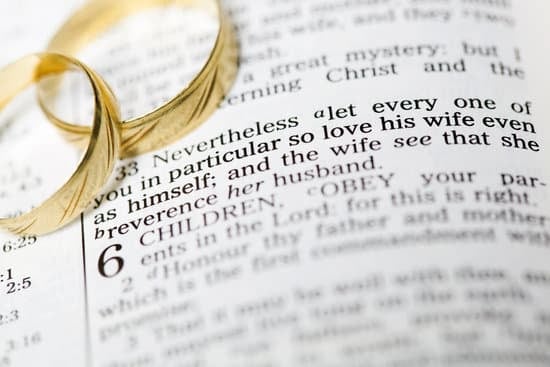Planning a wedding involves numerous decisions, and one of the most significant is the length of the wedding ceremony. Many factors can affect this, including cultural traditions, personal preferences, and practical considerations. Understanding the importance of the duration of a wedding ceremony is crucial in creating a meaningful and memorable event for both the couple and their guests.
How long is a normal wedding ceremony? This question often arises when couples begin planning their big day. The answer varies widely depending on various factors, but it ultimately comes down to what feels right for the couple. In this article, we will explore the different elements that influence the length of a wedding ceremony and provide tips for planning a ceremony that suits your individual needs and preferences.
From traditional customs to modern trends, we will delve into how different cultures approach the duration of wedding ceremonies. We will also address common misconceptions about wedding ceremony lengths and discuss their impact on guests.
Additionally, expert advice will be offered on creating a meaningful and memorable wedding ceremony regardless of its length. Whether you are considering a brief, intimate affair or an elaborate celebration, understanding the significance of your chosen ceremony length is essential in embracing the uniqueness of your own special day.
Factors That Affect the Length of a Wedding Ceremony
When it comes to planning a wedding ceremony, one of the most important considerations is the length of the event. There are several factors that can affect the duration of a wedding ceremony, and it’s important to take these into account when planning your own special day.
One factor that can significantly impact the length of a wedding ceremony is the religious or cultural traditions of the couple or their families. Different cultures and religions have their own customs and rituals that are incorporated into wedding ceremonies, and these can vary widely in terms of length. For example, a traditional Catholic wedding ceremony typically lasts around 45 minutes to an hour, while a Jewish wedding ceremony can be as short as 15-20 minutes.
Another factor that can influence the duration of a wedding ceremony is the number of readings, musical performances, and other special elements included in the program. Couples who choose to incorporate multiple readings or musical interludes may find that their ceremony lasts longer than those who opt for a more streamlined format.
Additionally, the size and layout of the venue can also play a role in determining how long a wedding ceremony will last. Couples who plan to exchange vows in an elaborate outdoor setting may need extra time for guests to be seated and for logistical reasons.
- Religious or cultural traditions
- Number of readings and performances
- Size and layout of venue
Ultimately, every couple’s wedding ceremony will be unique, and it’s important to consider these factors as you plan your own special day. By taking these elements into account, you can ensure that your wedding ceremony is the perfect length for you and your partner.
Traditional Wedding Ceremony Lengths in Different Cultures
Wedding ceremonies are a crucial part of many cultures around the world, and each culture has its own traditions and customs that influence the length of the ceremony. In some cultures, wedding ceremonies can last for several hours, while in others they might be relatively short. The length of a traditional wedding ceremony is often a reflection of the cultural values and beliefs held by the community.
For example, in Hindu weddings, the length of the ceremony can vary significantly depending on the region and specific customs followed by the families involved. In some cases, Hindu wedding ceremonies can last for several hours or even days, with a series of rituals and ceremonies that each have their own significance. On the other hand, Japanese Shinto weddings are typically much shorter, lasting only about 20 to 30 minutes.
In Western cultures, such as those in Europe and North America, traditional Christian wedding ceremonies usually last about 30 minutes to an hour. This includes various components like processional music, readings from religious texts, exchange of vows and rings, and pronouncement of marriage. However, within these broad cultural categories there can still be significant variations based on local customs and personal preferences.
| Culture | Typical Wedding Ceremony Length |
|---|---|
| Hindu | Several hours to days |
| Japanese Shinto | 20 to 30 minutes |
| Christian (Western) | 30 minutes to an hour |
Modern Trends in the Duration of Wedding Ceremonies
In recent years, there has been a noticeable shift in the duration of wedding ceremonies. Traditionally, ceremonies could last anywhere from 30 minutes to an hour or more, depending on cultural and religious customs. However, modern trends have seen a move towards shorter, more concise ceremonies that still maintain the meaningful and solemn aspects of the wedding vows.
One of the main factors contributing to this change is the desire for efficiency and convenience. With busy schedules and a greater emphasis on time management, many couples are opting for shorter ceremonies in order to allow for a more streamlined wedding day. Additionally, with more outdoor and destination weddings becoming popular, couples often want to ensure that their ceremony does not take up too much time so that they can fully enjoy their chosen location.
Another trend influencing the duration of wedding ceremonies is personalization. Couples are now choosing to tailor their ceremonies to reflect their unique love story and values. This may include incorporating non-traditional elements or rituals that hold personal significance, resulting in a ceremony that is shorter but still deeply meaningful.
Despite these modern trends, it’s important to note that there is no one-size-fits-all answer to how long a wedding ceremony should be. Ultimately, the length of a wedding ceremony should align with the preferences and priorities of the couple getting married.
| Factors | Influence |
|---|---|
| Efficiency and Convenience | Desire for streamlined schedule |
| Personalization | Tailoring ceremonies to reflect unique love stories |
Tips for Planning a Wedding Ceremony That Is the Right Length for You
When it comes to planning a wedding ceremony, one of the key considerations is the length of the ceremony. The right length for a wedding ceremony varies from couple to couple, and it’s important to take into account your personal preferences and traditions. Here are some tips for planning a wedding ceremony that is the right length for you.
Communicate With Your Officiant
One of the first steps in planning the length of your wedding ceremony is to communicate with your officiant. Whether you have a religious or non-religious ceremony, your officiant will be able to provide guidance on the typical length and format of the ceremony. Discuss your preferences and any specific traditions or rituals you would like to include so that they can help tailor the ceremony to your desires.
Consider Your Guests
While it’s important for your wedding ceremony to reflect your unique relationship, it’s also important to consider your guests. Depending on cultural or familial expectations, some guests may have specific ideas about what constitutes an appropriate length for a wedding ceremony. To ensure that everyone feels included and comfortable, consider striking a balance between creating a meaningful ceremony and being mindful of time constraints.
Personalize Your Ceremony
Ultimately, the length of your wedding ceremony should be a reflection of you as a couple. Consider personalizing your ceremony with readings, music, or rituals that hold special meaning to you both. By incorporating elements that are significant to you as a couple, you can create a more meaningful and memorable experience for yourselves and your guests.
By taking these tips into consideration, you can plan a wedding ceremony that is the perfect length for you as a couple while also ensuring that it is inclusive for all who attend. Remember that there is no one-size-fits-all answer to how long a wedding ceremony should be – it’s ultimately up to you.
Common Misconceptions About the Length of Wedding Ceremonies
Many people have misconceptions about the length of wedding ceremonies, often believing that they need to conform to a certain standard. However, the truth is that there is no set “normal” length for a wedding ceremony. Each ceremony can vary depending on cultural traditions, personal preferences, and other factors. In this section, we will address some common misconceptions about the length of wedding ceremonies and debunk these myths.
Longer Ceremonies Are Better
One common misconception is that longer ceremonies are better or more meaningful. While some couples may prefer a longer ceremony with various rituals and readings, others may want a shorter, more succinct ceremony. The key is to focus on what feels right for you and your partner, rather than feeling pressured to conform to external expectations.
Short Ceremonies Lack Significance
On the flip side, some people believe that shorter ceremonies lack significance or depth. This is simply not true. A meaningful and heartfelt exchange of vows can happen in just a few minutes, and the length of the ceremony does not diminish its importance. It’s important to remember that the significance of the ceremony comes from the sincerity of the couple and their commitment to each other.
Guests Prefer Shorter Ceremonies
Another misconception is that guests prefer shorter ceremonies over longer ones. While it’s true that guests may appreciate a concise and well-organized ceremony, it ultimately depends on how engaged they are in the proceedings. A thoughtful and well-executed longer ceremony can be just as enjoyable for guests as a shorter one if it holds their attention and resonates with them emotionally.
By debunking these misconceptions, couples can feel empowered to create a wedding ceremony that truly reflects their own values and desires rather than feeling pressured to adhere to arbitrary standards regarding length. It’s essential to prioritize authenticity over perceived norms when planning your special day.
The Impact of the Length of a Wedding Ceremony on Guests
The length of a wedding ceremony can have a significant impact on the guests in attendance. A ceremony that is too long may leave guests feeling bored or restless, while a ceremony that is too short may not feel as meaningful or special. Striking the right balance in the length of a wedding ceremony is important to ensure that guests are engaged and enjoy the experience.
One factor that affects the impact of the length of a wedding ceremony on guests is their level of comfort. Guests who are seated for an extended period may start to feel uncomfortable, especially if the seating is not conducive to sitting for long periods of time.
It’s important for couples to consider their guests’ comfort when planning the duration of their ceremony, whether it means providing comfortable seating or arranging for breaks if the ceremony will be particularly long.
Another consideration is the overall experience and enjoyment of the guests. A well-paced wedding ceremony that holds guests’ attention and includes meaningful elements such as personal vows or cultural traditions can leave a lasting impression. On the other hand, a rushed or overly long ceremony may detract from the overall enjoyment and significance for those in attendance.
Ultimately, couples should strive to create a wedding ceremony length that respects both their own preferences and the comfort and enjoyment of their guests. Finding this balance can contribute to creating a memorable and meaningful event that will be cherished by all who attend. Whether it’s through thoughtful pacing, interactive elements, or strategic breaks, prioritizing guest experience can make all the difference in how the length of a wedding ceremony impacts those in attendance.
Expert Advice on How to Create a Meaningful and Memorable Wedding Ceremony
When it comes to creating a meaningful and memorable wedding ceremony, the length of the ceremony is an important factor to consider. Expert wedding planners and officiants understand the balance between a ceremony that feels too short or too long, and they have valuable advice on how to create the perfect length for your special day.
One key piece of advice from experts is to focus on the significance of each element within the ceremony. By carefully selecting readings, music, vows, and rituals that hold personal meaning for the couple, a wedding ceremony can be both meaningful and memorable without dragging on unnecessarily. Keeping these elements concise while still impactful can help maintain an ideal length for the ceremony.
Additionally, experts often suggest incorporating interactive elements into the ceremony that engage guests and create a sense of participation. This can include moments for guests to offer their well wishes or blessings, as well as unique rituals or activities that involve everyone present. By keeping guests actively involved in the ceremony, couples can ensure that the length of the wedding ceremony feels just right for everyone in attendance.
Another important aspect highlighted by experts is communication between the couple and their officiant or wedding planner. Clearly expressing preferences for the length of the ceremony and discussing any specific traditions or rituals that are important to incorporate will help ensure that the ceremony aligns with the couple’s vision. This open communication allows for a collaborative approach to creating a meaningful and memorable wedding ceremony while also ensuring that it is of an appropriate length.
Conclusion
In conclusion, it is clear that the length of a wedding ceremony is an important factor to consider when planning your special day. While there are traditional and cultural expectations for how long a wedding ceremony should be, modern trends show that couples are embracing the idea of creating a ceremony that reflects their unique preferences and values.
It is essential to understand the factors that can affect the length of a wedding ceremony, such as religious or cultural customs, personal beliefs, and the inclusion of special rituals or traditions.
When planning your wedding ceremony, it is crucial to consider what feels right for you as a couple. Whether you opt for a short and sweet ceremony or a longer, more elaborate one, the key is to create a meaningful and memorable experience for both you and your guests. Utilize expert advice on how to tailor your ceremony to reflect your personalities and relationship, allowing it to stand out in its uniqueness.
Ultimately, there is no one-size-fits-all answer to how long a normal wedding ceremony should be. Couples are encouraged to embrace the uniqueness of their own wedding ceremony length and create a celebration that truly represents who they are as individuals and as partners. By doing so, you can ensure that your wedding ceremony will be an unforgettable moment that sets the tone for the rest of your married life together.
Frequently Asked Questions
Is a 15 Minute Wedding Ceremony Too Short?
A 15-minute wedding ceremony can be seen as too short for some people, as it may not allow enough time for important traditions or personalized elements. However, for others, a short and sweet ceremony is perfect for their preferences.
How Long Are Average Wedding Ceremonies?
The average length of a wedding ceremony can vary depending on cultural or religious customs, as well as personal preferences. On average, a non-religious wedding ceremony typically lasts around 20-30 minutes, while religious ceremonies can range from 30-60 minutes.
What Is a Normal Wedding Ceremony Time?
A normal wedding ceremony time is generally around 20-30 minutes for non-religious ceremonies, while religious ceremonies may span from 30-60 minutes or more. Ultimately, the length of the ceremony is determined by the couple’s choices and any cultural or religious traditions they adhere to.

I have been involved in marriages for over 20 years helping couples and singles understand more about them.





